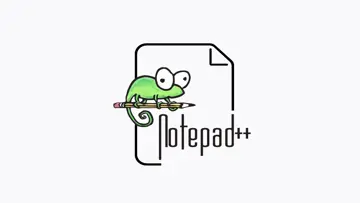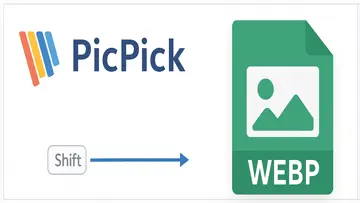C++ Portable Types Library (PTypes): A Cross-Platform Champion
PTypes offers a robust and flexible solution for managing portable data types in C++, making cross-platform development smoother and more efficient.
Overview of C++ Portable Types Library (PTypes)
The C++ Portable Types Library, commonly referred to as PTypes, is an open-source library developed by Hovik Melikyan. It aims to provide portable, robust, and efficient types for C++ programming, catering to various platforms and operating systems. PTypes facilitates consistent development practices, enabling programmers to focus on the core logic of their applications without getting bogged down by compatibility issues.
Key Features
- Cross-Platform Compatibility: PTypes is built to work seamlessly across multiple operating systems, including Windows, macOS, and Linux.
- Rich Set of Data Types: The library offers a variety of standardized data types that go beyond the basic types provided by C++. This includes types for strings, containers, and smart pointers.
- Ease of Use: With a focus on simplicity and ease-of-use, PTypes offers straightforward APIs, making it accessible for both novice and experienced developers.
- Performance-Oriented: Despite offering numerous features, PTypes is optimized for performance, ensuring minimal overhead when utilizing its functionalities.
- Documentation and Support: Comprehensive documentation is provided to guide users through various functionalities and use cases of the library.
- Open Source Community: As an open-source project, PTypes welcomes contributions from developers worldwide, which promotes continuous improvement and updates.
Installation and Setup
The installation process for PTypes is designed to be straightforward. It typically involves downloading the library files from the official repository and then including them in your C++ project. Users can follow these steps:
- Download: Obtain the latest version of PTypes from its official GitHub repository.
- Include in Project: Integrate the downloaded files into your project's source directory or reference them appropriately based on your development environment.
- Configuration: If using a build system like CMake or Makefile, adjust the configuration files to include PTypes in your build process.
This simplified setup enables developers to start leveraging the power of PTypes swiftly.
Core Data Types
PTypes provides various core data types that expand upon C++'s basic capabilities. Some notable types include:
- PString: An advanced string handling class that includes features like automatic memory management and Unicode support.
- PArray: A dynamic array type that offers resizing capabilities while ensuring efficient memory usage.
- PMap: A map type that allows key-value pairs with optimized retrieval operations, aiding in faster lookups compared to standard maps.
- PList: A list-like container that supports both sequential access and indexed access for better versatility.
Error Handling Mechanism
Error handling is crucial in any programming landscape. PTypes implements a sophisticated error handling mechanism that allows developers to catch and manage exceptions gracefully. This system ensures that applications using PTypes can respond correctly to runtime errors without crashing or causing undefined behavior.
Performance Insights
The performance of PTypes has been rigorously tested across various benchmarks. The lightweight nature of its data structures contributes to minimal memory overhead while maintaining speed. Operations executed using PTypes tend to show optimized performance metrics against traditional data types in standard C++. This efficiency is particularly beneficial when processing large datasets or executing time-critical operations.
Use Cases
PTypes can be effectively utilized in multiple scenarios:
- Cross-Platform Applications: Developers creating software intended for multiple operating systems will find the portability of PTypes extremely useful.
- Migrating Legacy Code: When updating or maintaining older codebases, incorporating PTypes can modernize type handling while improving maintainability.
- Aiding Rapid Development: For projects with tight deadlines, rapid prototyping with advanced data types can accelerate development processes.
The Community and Contributions
The PTypes community thrives on collaboration and knowledge sharing. Being open-source means any developer can contribute improvements or report issues. GitHub serves as the primary platform for discussions regarding bugs or feature requests. Additionally, community members often organize events such as hackathons to foster innovative solutions utilizing PTypes functionalities.
C++ Portable Types Library (PTypes) presents an invaluable resource for C++ developers seeking a versatile and portable way of handling data types across multiple platforms. Its comprehensive features combined with robust performance metrics make it an essential addition for modern C++ projects. The supportive community further enhances its value by fostering ongoing improvements and facilitating user engagement around this powerful library.
Overview
C++ Portable Types Library (PTypes) is a Open Source software in the category Development developed by Hovik Melikyan.
The latest version of C++ Portable Types Library (PTypes) is currently unknown. It was initially added to our database on 10/16/2009.
C++ Portable Types Library (PTypes) runs on the following operating systems: Windows.
C++ Portable Types Library (PTypes) has not been rated by our users yet.
Pros
- Offers a range of portable types that enhance coding efficiency across different platforms.
- Helps in achieving better type safety and consistency in C++ applications.
- Supports various C++ standards, making it adaptable to both old and new codebases.
- Facilitates easier cross-platform development by standardizing data types, reducing platform-specific issues.
- Includes a simple and clear API that aids in faster development cycles.
Cons
- Limited community support and resources as it's not as widely adopted as other libraries.
- Possibly fewer features compared to more mature libraries due to its niche focus.
- Dependency on the PTypes library might increase complexity in some cases if not managed properly.
- Could have learning curve for developers unfamiliar with portable type abstractions.
- Lack of comprehensive documentation may hinder its ease of use for new users.
FAQ
What is PTypes?
PTypes is a C++ Portable Types Library created by Hovik Melikyan.
What is the purpose of PTypes?
PTypes is designed to provide a set of portable data types and utility functions to assist C++ developers in writing cross-platform code.
Is PTypes open source?
Yes, PTypes is an open-source library released under the GNU Lesser General Public License (LGPL).
What platforms does PTypes support?
PTypes is intended to be platform-independent and can be used on a variety of operating systems including Windows, Linux, and macOS.
Does PTypes provide support for multithreading?
Yes, PTypes offers classes for multithreading synchronization such as mutexes, semaphores, and condition variables.
Can PTypes be easily integrated into existing C++ projects?
Yes, PTypes is designed to be lightweight and easy to integrate into existing C++ projects.
Are there any performance considerations with using PTypes?
PTypes is optimized for performance and efficiency, making it suitable for use in performance-critical applications.
Does PTypes have any dependencies on external libraries?
PTypes has minimal dependencies on external libraries, making it a self-contained solution for portable data types in C++ projects.
Is there active development and support for PTypes?
Hovik Melikyan actively maintains the PTypes library and provides support through various channels such as GitHub and community forums.
Can PTypes be used in commercial projects?
Yes, PTypes can be used in both open-source and commercial projects as long as the LGPL licensing terms are followed.

Elena Angelini
I'm Elena, your go-to software reviewer at UpdateStar and tech enthusiast. Whether you're a user seeking the latest software titles or software news I've got you covered. When I'm not diving into the latest software, you can find me exploring nature trails, camping under the stars, or competing in online multiplayer games. My reviews are designed to be fun, engaging, and packed with all the details you need to make informed decisions.
Latest Reviews by Elena Angelini
Latest Reviews
|
|
Wave Editor
Wave Editor: A versatile audio editing tool for professionals and beginners alike! |
|
Worms Forts Under Siege
Classic Strategy Meets Humorous Warfare in Worms Forts Under Siege |
|
|
|
GCFScape
Unleash the Power of Source Engine Games with GCFScape! |
|
|
WinDirStat
WinDirStat: Visualize and manage disk space usage efficiently |
|
|
KeyCtrl
Boost Your Productivity with KeyCtrl! |
|
|
GOM Media Player
GOM Media Player: A Versatile Multimedia Player for All Your Needs |
|
|
UpdateStar Premium Edition
Keeping Your Software Updated Has Never Been Easier with UpdateStar Premium Edition! |
|
|
Microsoft Edge
A New Standard in Web Browsing |
|
|
Microsoft Visual C++ 2015 Redistributable Package
Boost your system performance with Microsoft Visual C++ 2015 Redistributable Package! |
|
|
Google Chrome
Fast and Versatile Web Browser |
|
|
Microsoft Visual C++ 2010 Redistributable
Essential Component for Running Visual C++ Applications |
|
|
Microsoft Update Health Tools
Microsoft Update Health Tools: Ensure Your System is Always Up-to-Date! |





